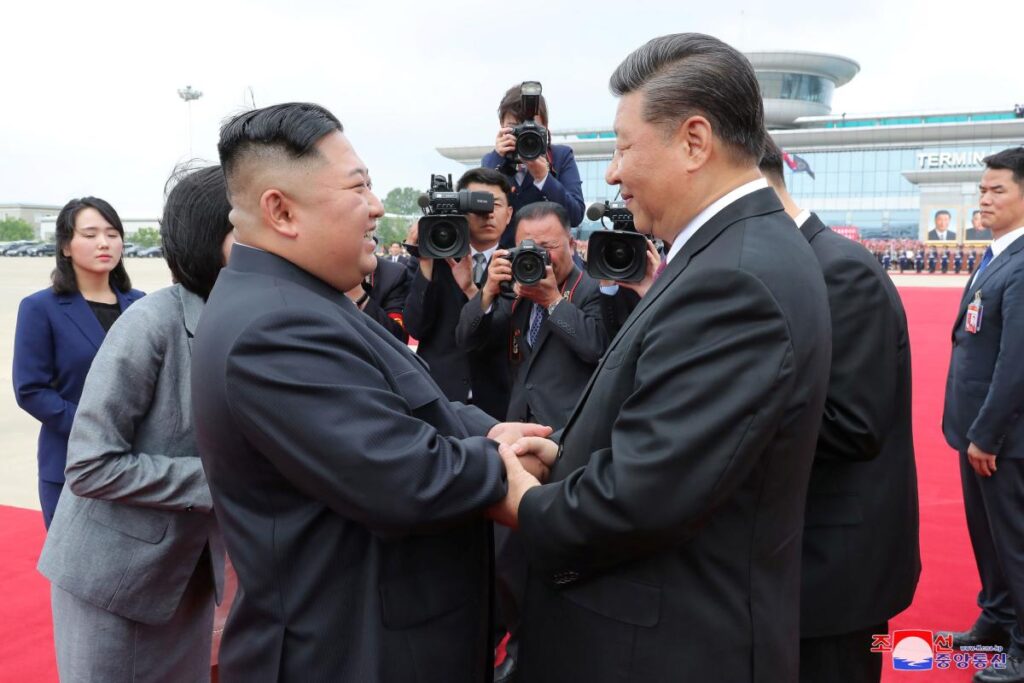On Sunday, China and North Korea commemorated the 75th anniversary of their diplomatic relations, an event marked by the leaders of both nations who expressed a strong commitment to deepening their cooperation. During the ceremony, both nations praised the historical support that China has provided to North Korea, emphasizing their desire to open “a new chapter” in their bilateral relationship. This commitment to strengthen ties reflects a long-standing partnership that dates back to the Korean War, highlighting the significance of solidifying their cooperation in light of current global tensions.
The renewed diplomatic engagement between China and North Korea comes amidst growing concerns in the West, particularly from the United States, about what is being characterized as an emerging “axis of evil.” This term refers to a perceived alliance between China, North Korea, Russia, and Iran, which many analysts believe is fostering increased military and economic collaboration. Such cooperation is seen as a threat to regional stability, contributing to ongoing conflicts, notably the war in Ukraine. The shared interests of these nations in opposing US influence and Western dominance are becoming increasingly evident in various international arenas.
However, analysts caution against overestimating the level of cohesion among these four countries. A former US State Department official highlighted the lack of ideological unity among them, pointing out that their partnership is more about convenience than shared beliefs. Each country has its own distinct motivations, and while they may collaborate on certain issues, the underlying factors driving their relationships differ significantly. This complexity complicates the notion of a seamless “axis” and suggests that alliances formed out of necessity may be more fragile than they appear.
China itself remains hesitant to fully align with North Korea in an overtly anti-Western stance. Despite the strengthening of their bilateral ties, experts note that China continues to recognize the United States and Europe as crucial economic partners. The duality of China’s position—supporting North Korea while also valuing its economic relationships with the West—highlights a delicate balancing act that Beijing must navigate. Analysts suggest that while China is willing to provide certain levels of support to its ally, it is unlikely to engage in any formalized anti-West coalition that could jeopardize its economic interests.
Competiting narratives around the cooperation between China and North Korea reflect broader geopolitical shifts. While the West emphasizes the potential threats posed by this partnership, there exists a counter-narrative in which these nations are responding to perceived aggression from the US and its allies. This perspective positions the China-North Korea relationship as a reaction to external pressures, rather than purely an expansionist agenda. As such, the dynamics of their partnership will likely continue to evolve, influenced by both domestic and international developments.
In conclusion, the 75th anniversary of China-North Korea diplomatic ties marks a significant moment in their ongoing relationship, particularly in the context of rising global tensions. While both countries express intentions to fortify their partnership, the reality of their cooperation is complex and multifaceted. As the geopolitical landscape continues to change, understanding the motivations and limitations of this relationship will be crucial in assessing the broader implications for regional and global stability. The focus should remain on the strategic interests at play, rather than oversimplifying the dynamics as purely antagonistic.

